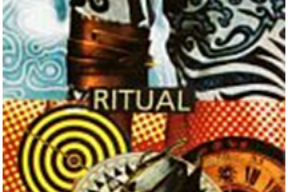INTERIOR. ANY SINGLES BAR IN THE 1970s.
JOE Can I buy you a drink?
APRIL (looking about the room) Why not? What’s your sign?
Same scene 40 years later …
INTERIOR. ANY COFFEE SHOP IN THE 2010s.
JOE Can I get you a cup of coffee?
APRIL (trying to stay focused on her online blog writing)
Why not? So, I’m an ISTJ. What’s your type?
JOE (picking at his sweater) INFP. Do you like cats?
 If you aren’t familiar with those four-letter acronyms in scene two, INFP stands for introverted intuitive feeling perceiving, a Meyers-Briggs type indicator which the Washington Post calls “the world’s most widely used personality test.”
If you aren’t familiar with those four-letter acronyms in scene two, INFP stands for introverted intuitive feeling perceiving, a Meyers-Briggs type indicator which the Washington Post calls “the world’s most widely used personality test.”
Elena Bajic, Founder and CEO of IvyExec.com wrote an article in 2015 for Forbes online magazine entitled “How The MBTI Can Help You Build A Stronger Company,” and calls it “the most widely used personality inventory in the world, with more than 3.5 million assessments administered each year.” When I Googled meyers briggs personality facebook I got about 4,140,000 results.
Why should I care? Because corporations are using it in their hiring practices, academic institutions use it to inform educational practices, and even the feds have gotten in on the act. The United States Geological Survey (USGS) Human Capital Services and Support page suggests that you use Meyers-Briggs to “increase productivity” and “identify optimum career choice.”
[Click on hiring practices for a great article by Stephanie Taub entitled “Why Employers Use Personality Tests.”]
Leaving aside the fact that I have some twitchy feelings about the term human capital, I’m a bit concerned about the test’s ubiquity and the uses to which it is put. In general, I have strong reservations about psychological testing, especially IQ testing, and I’m deeply concerned about how ideas from academia get transmitted and filtered into popular media (including scientific studies and how people use them to form their opinions).
[Click on scientific studies to watch a gut-busting video on the subject by John Oliver on Last Week Tonight.]
But the reason I’m writing this is more about our social personas and the implications of using personality tests on our self-image and the way we present ourselves in social situations. We humans like to use labels to describe ourselves and I believe these have a profound effect on both our self-image and the way we present ourselves socially. So let’s get back to Joe and April and compare the two scenarios I opened with. In scene one, the trope is the pickup line and the conversation opener “What’s your sign?” is a way for April to find out more about this prospective stranger’s personality and how he thinks about himself. In scene 2, April responds by offering her Meyers-Briggs type and asks Joe for his. In both scenes, the sign and the type serve as handy reference points for revealing a little bit about ourselves, a typical social interaction we all engage in at times, and here’s the rub: people who like to think of themselves as introverts may feel meeting strangers is fraught with pitfalls. If they feel particularly phobic, they may see a doctor and get a diagnosis of SAD or social anxiety disorder. I realize that I’m conflating introversion, shyness and social anxiety here, but I’m slipping down this slope for more than rhetorical reasons. How much does self-labeling through other people’s published belief systems affect our ongoing production of our social and interior selves?
On a personal level, I’m a Gemini. My favorite horoscope is Rob Brezsny’s Freewill Astrology, and Mr. Brezsny’s advice of for me on January 18 was:
 Looks like the Season of a Thousand and One Emotions hasn’t drained and frazzled you. Yes, there may be a pool of tears next to your bed. […] But you have somehow managed to extract a host of useful lessons from your tests and trials. […] And so the energy you’ve gained through these gritty triumphs is well worth the price you’ve had to pay.
Looks like the Season of a Thousand and One Emotions hasn’t drained and frazzled you. Yes, there may be a pool of tears next to your bed. […] But you have somehow managed to extract a host of useful lessons from your tests and trials. […] And so the energy you’ve gained through these gritty triumphs is well worth the price you’ve had to pay.
What I like about this horoscope is that the term “free will” is made explicit. You can take it or leave it. The idea that distant events determine my personality is repugnant to me.
As far as my Meyers-Briggs type is concerned, I’m the Advocate Personality (INFJ). I took the brief online test at 16personalities.com and here’s an excerpt: “The Advocate personality type is very rare, making up less than one percent of the population, but they nonetheless leave their mark on the world.” After getting my results, I noticed that I was a bit pleased to have a rare type, but I’m also a little suspicious. This reminds me of social media marketing and the old confidence trick of telling the mark what they want to hear.
While skeptics decry astrology as magical thinking, I think the scientific veneer of Meyers-Briggs makes it more pernicious. I believe that the person on the street is more likely to internalize a label that seems scientific than one that is less fact-based but otherwise concordant with their worldview. Of course, that’s brushing an entire population with a cosmetic gloss, but anti-vaxxers and climate change deniers aside, we live in an age where scientific materialism and the power of technology hold sway with us as thinkers and tool users, so it seems reasonable to me to hypothesize that beliefs that sound scientific are more likely to be “consumed” by members of our culture than say, the belief in the New World Order, or more popularly, the Kentucky Fried Rat of yesteryear.

Having digressed from my argument with what I hope was amusing media, let me wind this up with the ol’ thesis statement: I’m careful about what I choose to believe in, and if you are, too, you might consider asking yourself what labels you use, and if you like one that’s floating around the belief-o-sphere, ask yourself how useful it would be to think that way about yourself and others, what the implications for believing in it are, etc. I suspect that if you are reading this, you’re already good at judging opinions, discriminating between what you believe to be facts and what you deem fake news, and have many opinions of your own about the media, the local gossip, and your social circle’s favorite topics. You also form said opinions, beliefs and accumulate your facts in some manner possibly similar to mine. I like to spend time assessing what I think and feel and what the implications are for my own actions while doing mundane tasks like washing the dishes. And so I ask you, dear reader, to consider my not-very-humble ramblings for a bit, try them on for size, and decide for yourself if they are useful to you. As for personality tests, I think keeping your label options open is more important than having a personality to-do list.